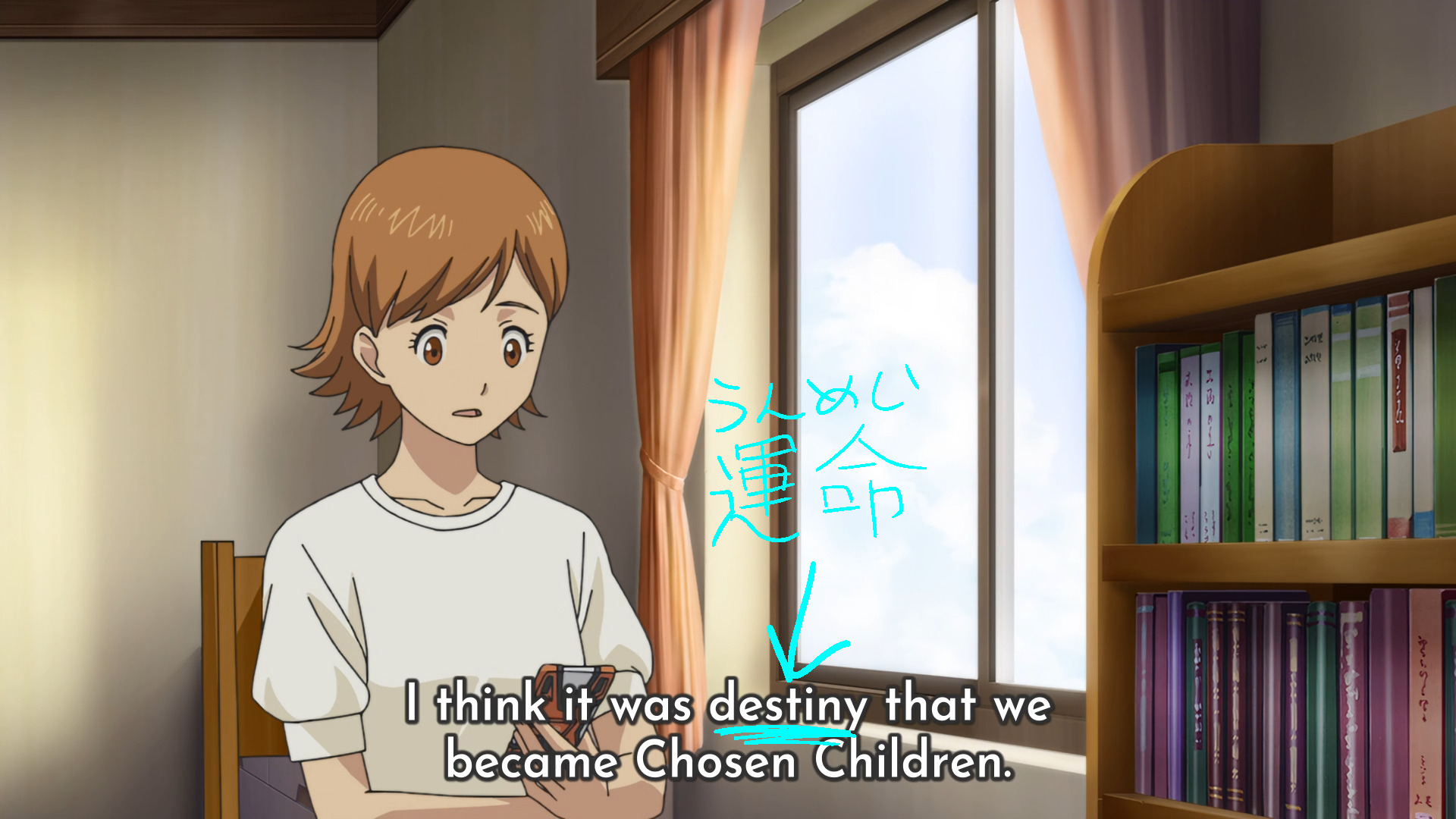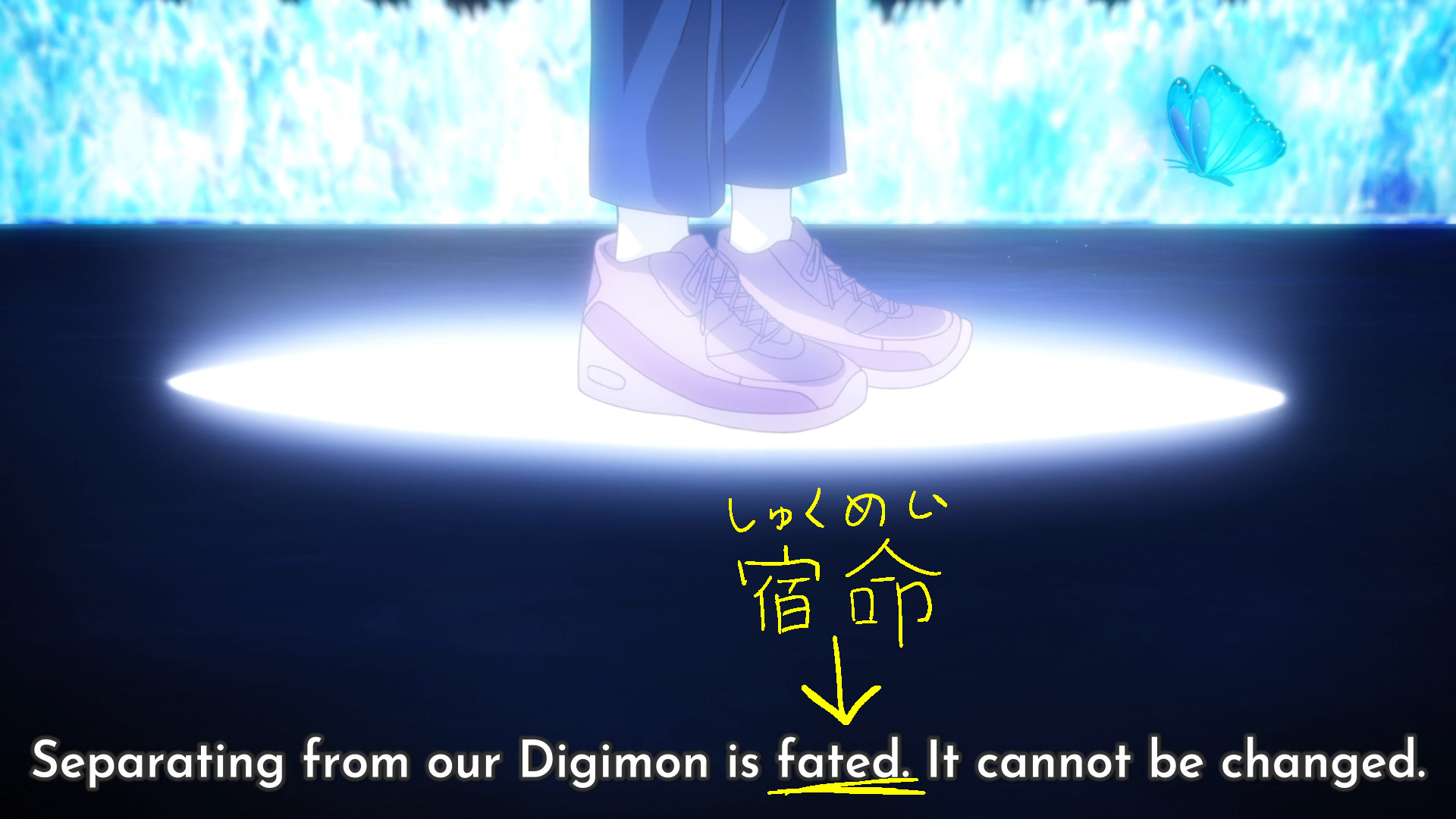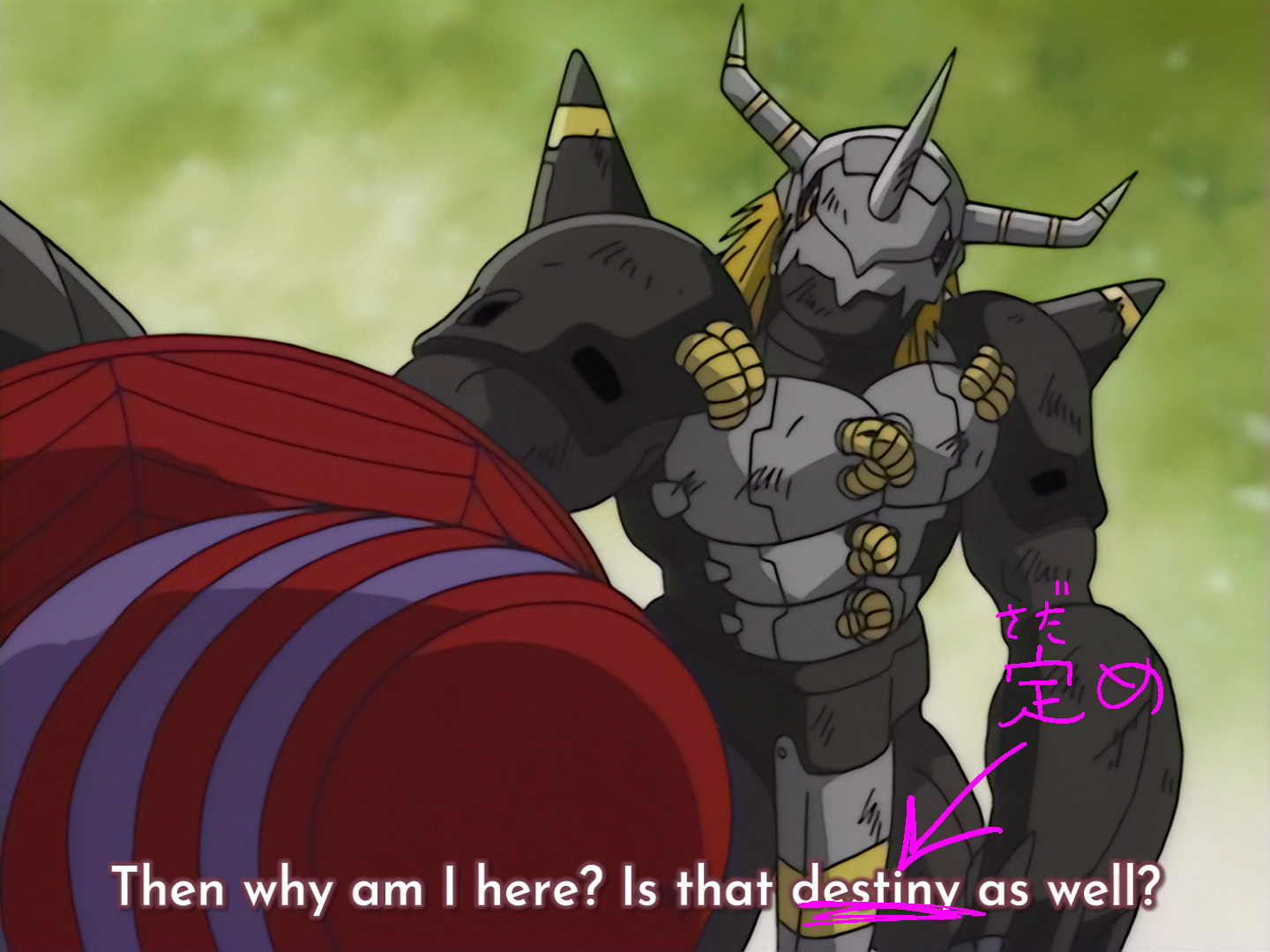Please do not the shukumei: Y’all have been localizing Kizuna suboptimally for four years now
(Disclaimer up front: If you are a Kizuna translator and you are reading this article, please do not take it as a personal attack on you. You did good work on the whole, this is just a highly specific bitchpost about a specific choice that all of you independently agreed on.)
Hey, did you know that there are actually three words for fate in Digimon Adventure 02?



Discourse about how to properly render these words in English translation has a very strong tendency to completely ignore the existence of sadame, and in a sense this is understandable, since translating the original 02 TV anime is widely considered a solved problem that PositronCannon has undisputed reign of. But like, seriously, Kizuna is a part of 02, and however you talk about unmei reflects backwards on Hurricane Touchdown, a movie which was notably a major thematic influence on Kizuna, so it's important that the localization of the TV anime and the sequel movie be in sync, right?
02 as a whole carries a running theme of the divide between the expectations placed on a child by their parents and society, and who they actually are and strive to be. While Ken is the one everyone points to, since he is the most front-facing expression of this motif (and of course he's the one who was directly inspired by showrunner Hiromi Seki getting weirdly mad about American schools allowing students to skip grades), the most archetypal example here is actually BlackWarGreymon; he was literally created entirely by accident in an attempt to make a more powerful weapon, and once he's ensouled, nobody's really sure what to do with him, least of all his parents. His search for meaning in life culminates in the above screenshot, where Qinglongmon informs him of the nature of his creation, he threatens to strangle his mother about it, and she pleads for her life by, well, <char>blaming it on the misfortune of his birth</char>:
ARCHNEMON: I had no ill intentions! It just couldn't be helped!
ARCHNEMON: This was all part of your destiny!
BLACKWARGREYMON: Destiny?
BLACKWARGREYMON: Then why am I here? Is that destiny as well?
I think that most people who've experienced the kind of shitty parenting that 02 is an extended critique of would agree that "destiny" is a more impactful English localization of sadame here. While destiny has the same subtext as fate in practice, poetically it calls to mind predestination, an oppressive and "fixed" fate, yet the concept is simultaneously treated by This Specific Kind Of Asshole as being an intrinsic moral good that retroactively justifies all their child's success, as to them, it was meant to be this way. It's a convenient lie they tell themselves, the sister myth to the "talented artist," that elides any free will the subject expresses as a waste of their god-given path, their destiny. To parents like this, the victim should just shut up about this ridiculous "dreams and aspirations" nonsense because they were born to be an [insert high-status occupation] for the parents to show off to their friends like a trophy, and any deviation is seen as a personal insult.
Like, you get the core issue here with how this intersects with the standard paradigm of Kizuna localization, right? This is very obviously different from the "fate" that Wallace changes, but it's also a different nuance from shukumei. Menoa uses Buddhism as an outlet for emotional self-harm, and her conception of bond severance as an inevitability is an extension of the inherent suffering of human existence, to which Taichi replies that's bullshit. This isn't the same purposeful "destiny" that BlackWarGreymon was imbued with at the moment of his creation; it's not the weight of societal expectation, it's blackpilled doomerism. In English, where we don't have nuanced terms for different types of fate (because the dominant culture acknowledges the existence of free will, so believing in fate at all inherently means you're opinionated about its nature), Menoa's shukumei inherently necessitates phrasing that's stronger emotionally.
In real life, people say that you can change your fate. This is a perfectly normal English turn of phrase, and because it is a normal thing that actual people say in real life, it is also a perfectly normal way of translating unmei wo kaeru. How should you render shukumei, then? "Wyrd," like an Old English epic? Hell no, that term has narrativizing subtext that makes it overlap too hard with sadame. Should we then render it as "fate" and consign unmei to being "fortune"? Also no, because however you localize unmei has to make sense out of context on account of the Digimental, and again — it is the dominant consensus in real life that you can change your fate.
I guess you're going to have to accept that sometimes a translator will run into turns of phrase that don't have perfect English equivalents, and thus have to slightly rephrase the line to make it work, then! Translation is an inherently interpretive act! Own it!
At the end of the day, my position is this: Don't treat shukumei/unmei as a dichotomy, because there's a secret third thing that also matters.
- Sadame is best rendered "destiny."
- Unmei is best rendered "fate."
- Shukumei should be localized as a (consistent) adjective of the translator's choice.
Predetermined, preordained, fixed? Dig through Utena for a similar concept and follow in the shoes of your preferred TL? I dunno, what sounds the best to you?
This concludes my saltpost. Stay chuuni. Ruki out.